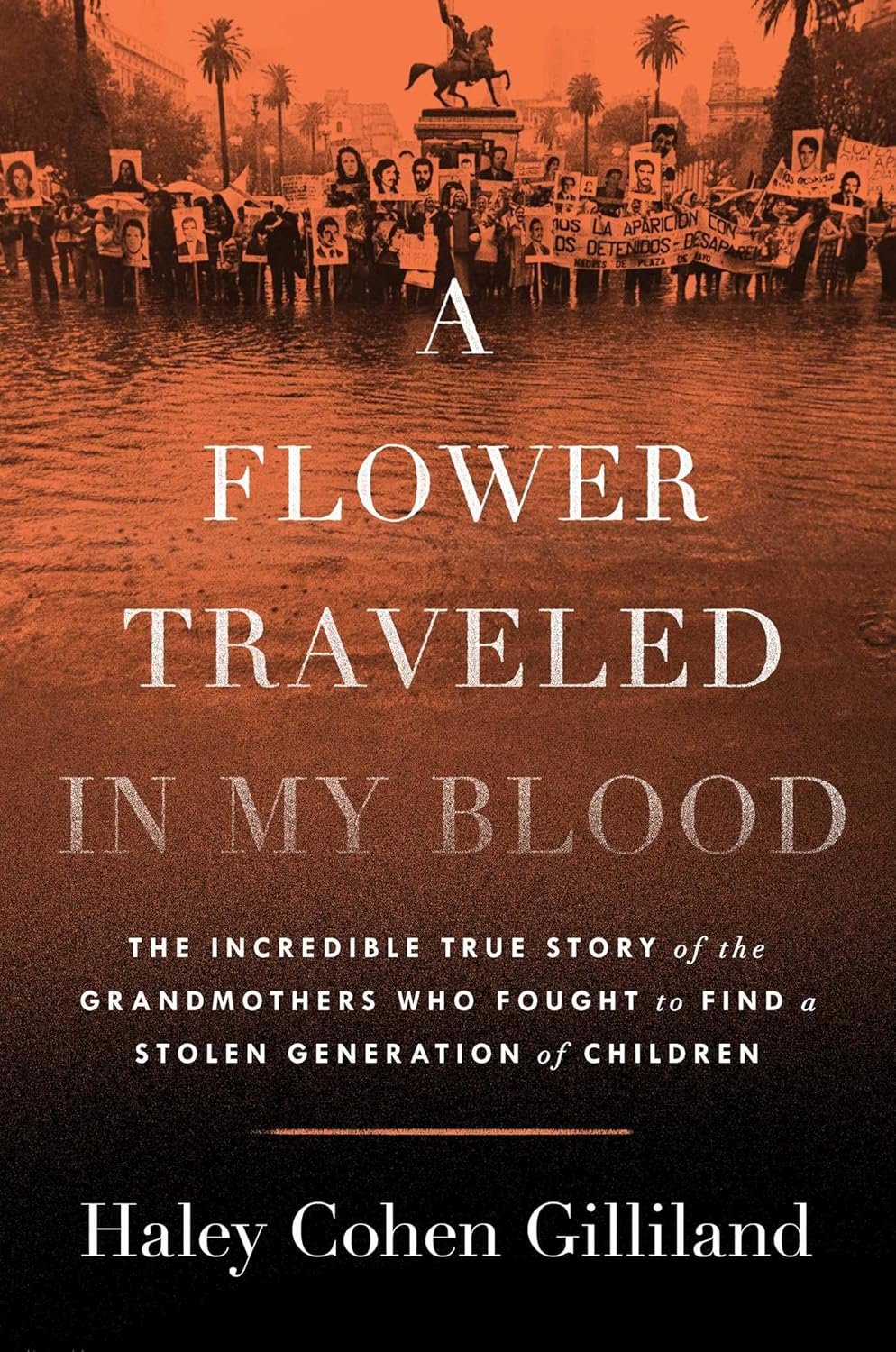A Journey Through Heartbreak: My Review of A Flower Traveled in My Blood by Haley Cohen Gilliland
From the moment I picked up A Flower Traveled in My Blood, I was struck by the weight of its title and the promise of an extraordinary story woven through the tapestry of a heartbreaking history. I was drawn in not just by the subject matter—the resilience of the Abuelas de Plaza de Mayo—but also by Haley Cohen Gilliland’s vision to bring to life the unrelenting search for justice against a backdrop of political darkness. This is a book that lingers in your heart long after the final page.
The narrative thrusts us into the fierce and poignant world of the Abuelas, women who became warriors in their quest for truth in the wake of Argentina’s brutal dictatorship. Gilliland meticulously details how these grandmothers united against unspeakable loss, grappling not only with the abduction of their grandchildren but also navigating a state that wanted to silence them. The contrast between their maternal love and the stark cruelty of the regime serves as a catalyst for profound reflection on family, identity, and the very essence of humanity.
Rosa Roisinblit—a name that will echo in my mind. Her journey, one that intertwines with her daughter Patricia’s tragic fate, underscores the emotional core of this book. Gilliland’s compassionate writing helps us connect with these women on an intimate level, fostering empathy rather than just historical understanding. The pacing creates a sense of urgency that mirrors the Abuelas’ own race against time, yet it allows for moments to linger in the emotional reverberations of their loss.
Gilliland’s choice to refer to the Abuelas and Madres by their first names is a brilliant narrative technique. It humanizes these historical figures in a way that enhances our connection to their struggle, making each death, loss, and act of rebellion personal. It’s an effective choice that invites us to resonate with their fight—not as distant witnesses but as fellow seekers of truth.
One haunting moment that stuck with me is when Gilliland mentions how the Abuelas took on detective roles, pouring over classified documents and adopting aliases to find their stolen grandchildren. It exemplifies their transformation from grieving mothers to relentless activists; it’s a testament to the power of love and determination. This theme of love as a force for social change runs through the book, making it a poignant reminder of the strength of familial bonds and the human spirit.
In a world grappling with its own crises, A Flower Traveled in My Blood commands a reading that leaps beyond historical accounts. Gilliland delivers an unflinching mirror to the present—a call to recognize the atrocities that echo across borders and time. It beckons each of us to not only learn but also to resist.
I wholeheartedly recommend this book to anyone who finds themselves grappling with the legacies of trauma and resilience. Those looking for a narrative that intertwines personal losses with the broader struggles for justice will find it not just enlightening but also empowering. Ultimately, the reading experience has deeply moved me, echoing a clarion call for action—a reminder that our shared humanity is, after all, the most potent weapon against oppression.
So, gather your courage and dive into this profound narrative. You may find yourself changed, and if you are willing, ready to join the fight for justice, however you choose to define it.
Discover more about A Flower Traveled in My Blood: The Incredible True Stor… on GoodReads >>







